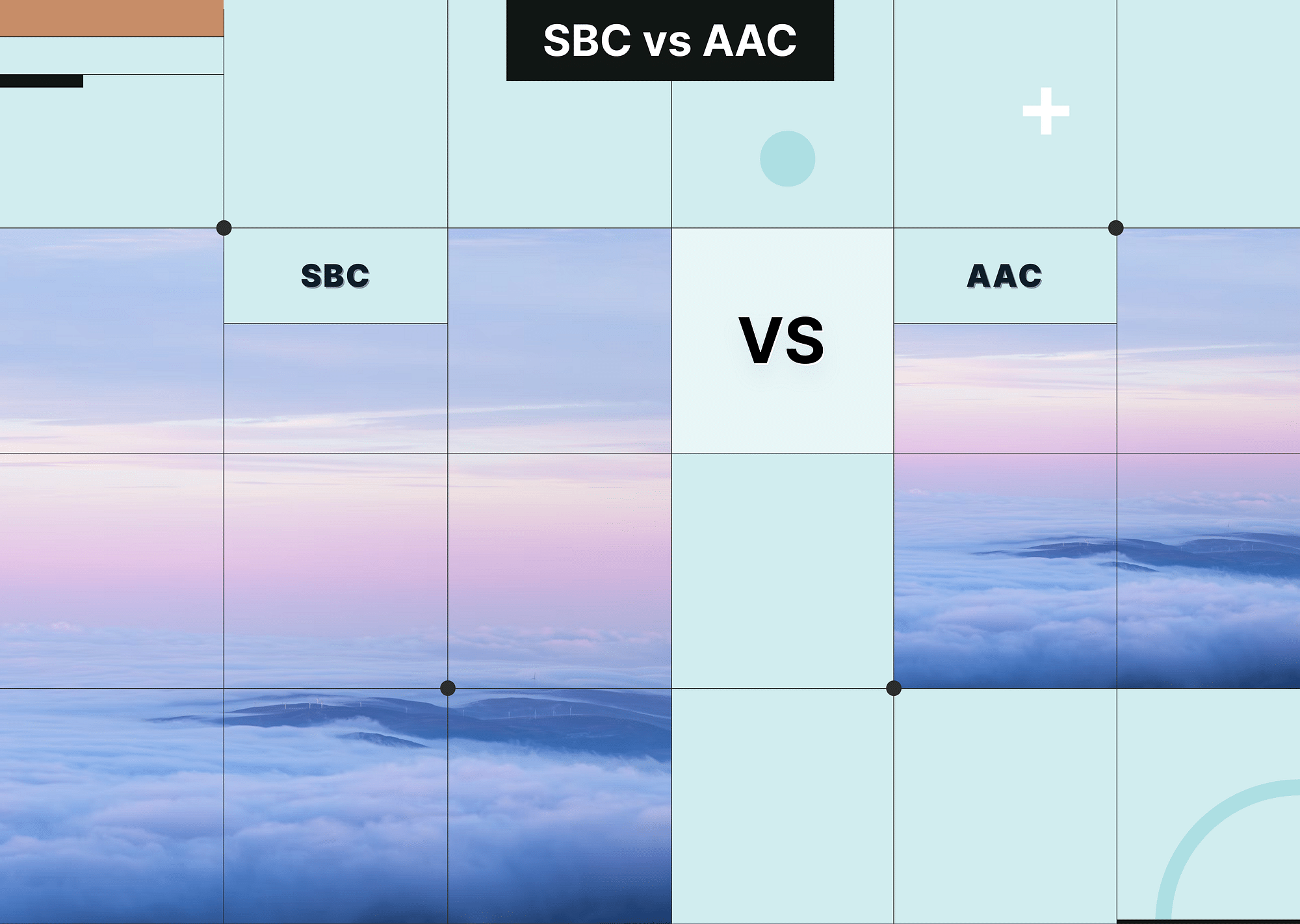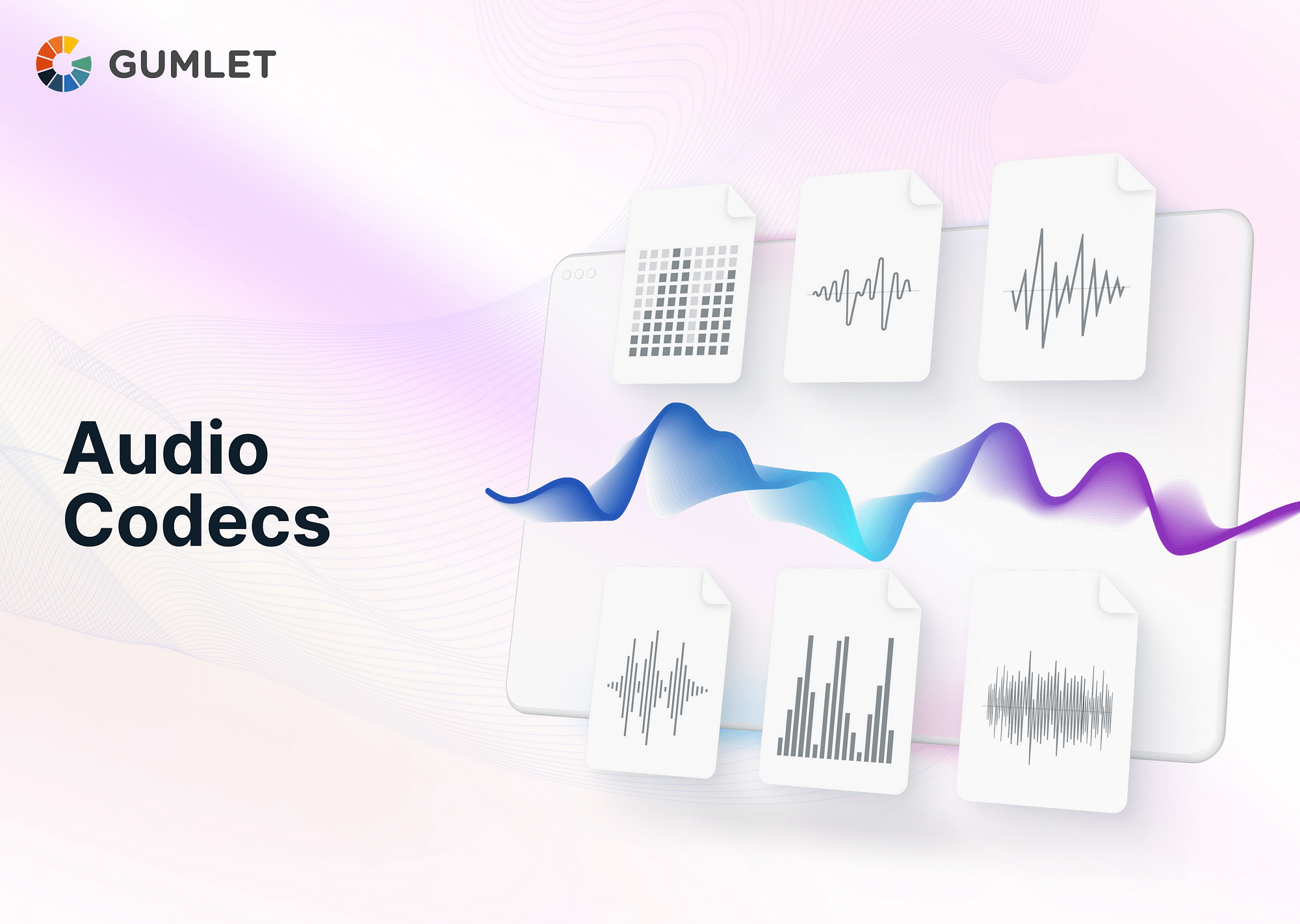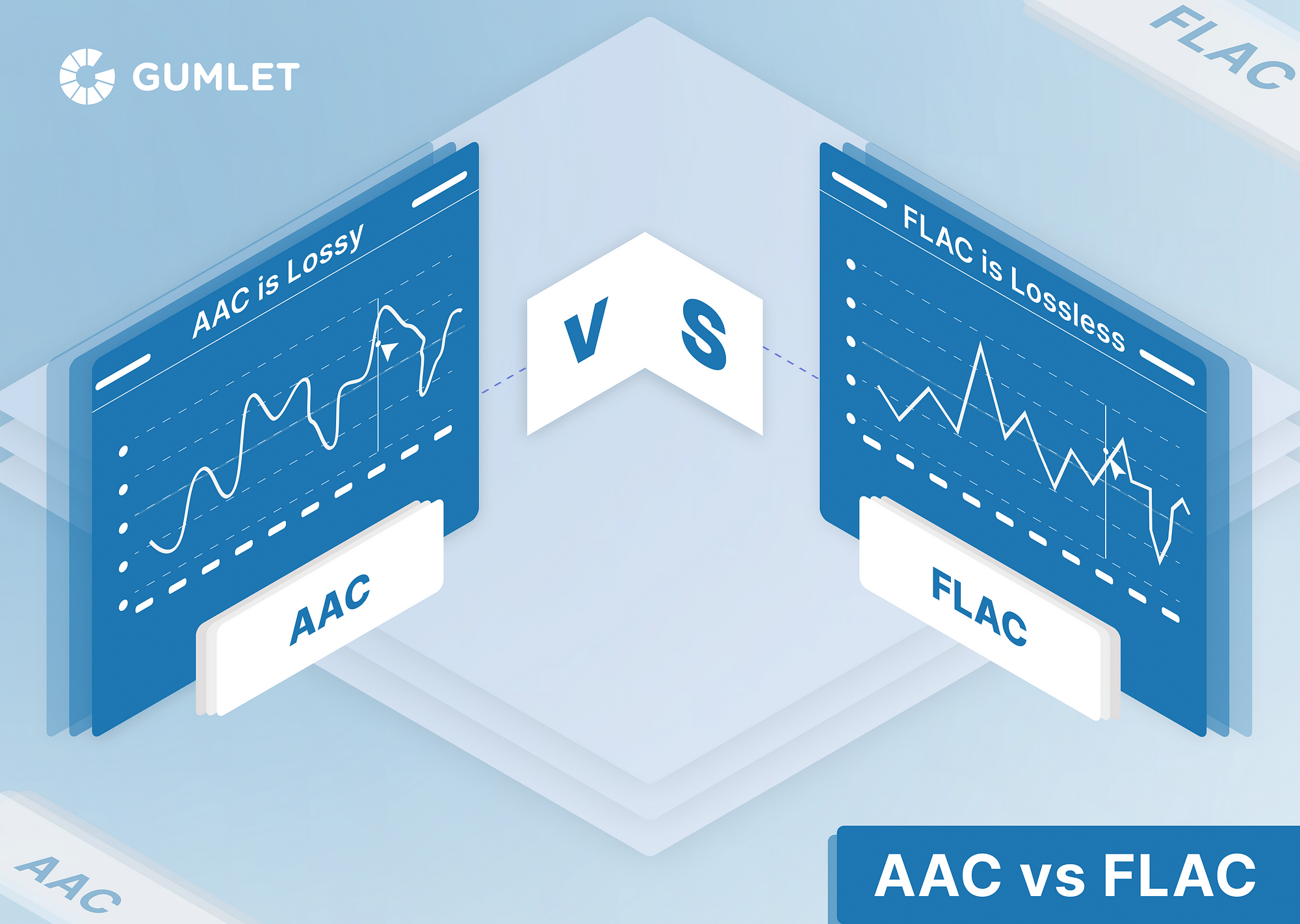Bluetooth is a wireless technology with relatively limited bandwidth. While every new version of Bluetooth slightly increases bandwidth, it still can't match Wi-Fi. Now, since digital audio can be too large to stream in real-time over Bluetooth, it requires to be repackaged to fit. If it weren't, you would end up waiting 10 seconds or more to hear music from Spotify on your wireless headphones. Bluetooth codecs handle this repackaging and streaming process.
What are Bluetooth Codecs?
Bluetooth “codecs” simply encode and decode audio using compression so it can fit in the bandwidth available. This very process ensures you get the best possible audio quality without delays. There are a few key audio codecs you should know about:
- SBC (Subband Codec): The most basic codec that offers the lowest quality.
- AAC: Better than SBC, and great for iPhones.
- AptX: Also better than SBC, and perfect for Android devices.
- LDAC: The highest quality codec, providing high-resolution audio.
In this article, we'll discuss SBC and AAC codecs in detail.
What is SBC Codec?
SBC (Subband Codec) is the most basic Bluetooth codec option which is set as default in many devices. It works with a 16-bit depth, a bit rate of up to 328Kbps, and a sampling rate of up to 48kHz. The SBC codec is compatible with all Bluetooth devices, which makes it a reliable fallback option in the event that better, more advanced codecs aren't available. It delivers reasonable audio quality surpassing CD audio, however, it is known for longer, noticeable latency. It typically maxes out at 328Kbps, is not a good fit for gaming or other real-time audio applications, and has yet to be optimized for new-age devices.
Pros and Cons of SBC
Pros
- All Bluetooth devices support SBC, ensuring compatibility.
- Mostly used in low-cost Bluetooth devices
Cons
- No compatible with high-resolution or lossless audio
- Lower audio quality compared to proficient codecs like AAC, AptX, and LDAC.
What is AAC Codec?
AAC (Advanced Audio Codec) offers better audio quality than SBC because of its higher bit depth which is up to 24-bit. With a bit rate of up to 320Kbps and a sampling rate of 44.1kHz, AAC delivers superior performance—thanks to its advanced compression algorithm. Apple devices handle AAC significantly well, which makes AAC a big improvement over SBC for iPhone users. However, AAC has relatively higher latency, so it's also not ideal for gaming. While you can use AAC on Android phones, the audio quality may suffer because Android doesn't process it as efficiently. Also, it doesn’t support high-resolution or lossless audio.
Pros and Cons of AAC
Pros
- It serves as the default codec for Apple devices.
- Provides excellent sound for most listening experiences.
Cons
- Uses more battery due to its complex processing
- Can have poorer performance and longer latency on Android devices.
SBC vs. AAC: A Detailed Comparison
Here's a quick SBC vs AAC codec comparison:
| Parameter | SBC | AAC |
|---|---|---|
| Sound Quality | Low sound quality; suitable for casual listening | High sound quality; provides clear and rich audio |
| Latency | High latency; causes noticeable delays | High latency |
| Battery Consumption | Consumes less power | Consumes more power due to higher computational complexity |
| Android Usage | Universally supported and reliable for basic audio | Works on Android devices, but may have quality issues |
| iOS Usage | Basic support, but not optimized for high-quality audio on iOS devices. | Best for iOS devices |
| Gaming | Not ideal for gaming due to high latency | Also not ideal for gaming because of high latency |
Sound Quality
If sound quality is your priority, AAC is the better choice. It provides higher audio clarity and richness compared to SBC, which offers only basic sound quality suitable for casual listening. For a more enjoyable and immersive audio experience, especially when listening to music or watching videos, AAC outperforms SBC.
Latency
Both SBC and AAC suffer from high latency, making neither ideal for gaming or real-time audio applications. You'll notice delays with either codec, so if low latency is crucial for your use, you might need to consider other options beyond these two.
Battery Consumption
SBC is more efficient in terms of battery usage, consuming less power during operation. This makes it a better choice for longer listening sessions on portable devices. AAC, while offering better sound quality, uses more power due to its complex processing, which can drain your battery faster.
Android Usage
Where AAC vs SBC Android usage is concerned, the former is universally supported and works reliably on Android devices, making it a more stable option. While AAC is also available on Android, it may suffer from quality issues due to less efficient processing. If you use Android, SBC might be the safer bet for consistent performance.
iOS Usage
AAC is the clear winner for iOS devices. It’s optimized for Apple's ecosystem, providing the best audio performance. SBC, on the other hand, is not optimized for iOS, resulting in lower audio quality. For iPhone or iPad users, AAC is the superior choice.
Gaming
Neither SBC nor AAC is ideal for gaming due to their high latency, which can cause noticeable audio delays. If you're a gamer, you may need to look into other low-latency codecs to ensure a smooth gaming experience.
Which is better: SBC or AAC?
In terms of audio quality, AAC is better than SBC. AAC gives you clearer and richer sound, especially on Apple devices, where it works best. Even at lower bitrates, AAC still sounds better than SBC. However, you can still enjoy a satisfactory experience, especially if your use case is casual listening. Typically, the difference in sound quality becomes most noticeable when you are using high-fidelity audio equipment. Also, SBC is more power-efficient, so it’s better for longer listening sessions on portable devices.
The bottom line is that your choice between AAC and SBC depends on your devices. AAC is well-supported on iOS devices and offers the best audio performance there. If you mainly use Apple products, AAC is the way to go. If your Bluetooth devices only support SBC, you'll still get decent audio quality, but it won't be as good as AAC. So, consider which codec your devices support and how they'll perform.
FAQs
- Which is better: SBC or AAC, or aptX?
SBC is considered to be the most basic codec and offers the lowest sound quality. In fact, both AAC and AptX are better options: AAC is the best choice for Apple phones and tablets and AptX, on the other hand, is perfect for Android devices. If you want the best audio experience on your device, choose AAC for Apple or AptX for Android.
- Which is the best Bluetooth audio codec?
AAC is generally considered the best for most types of music because it delivers superior audio clarity and detail. However, your personal preference and the quality of your earbuds can also affect how well you experience the codec's performance.
- Is aptX better than SBC?
Yes, aptX is generally better than SBC. It offers improved sound quality because it is designed to handle audio more efficiently, even though it’s less widely compatible. Both codecs allow you to enjoy wireless audio, but aptX provides a better listening experience if your devices support it.
- Do Bluetooth codecs make a difference?
Yes, Bluetooth codecs do make a difference. They affect audio quality, latency, and how efficiently sound is transmitted. Among the many Bluetooth codecs, some higher-quality options like AAC and AptX provide clearer, superior sound and can handle more audio data than basic codecs like SBC.
- Can you hear the difference between Bluetooth codecs?
Yes, you can often hear a difference between Bluetooth codecs. Some advanced codecs like AAC and AptX offer superior sound clarity and richness than basic codecs like SBC. The difference might be subtle on standard headphones, but it is clearly more noticeable on high-end audio equipment.




